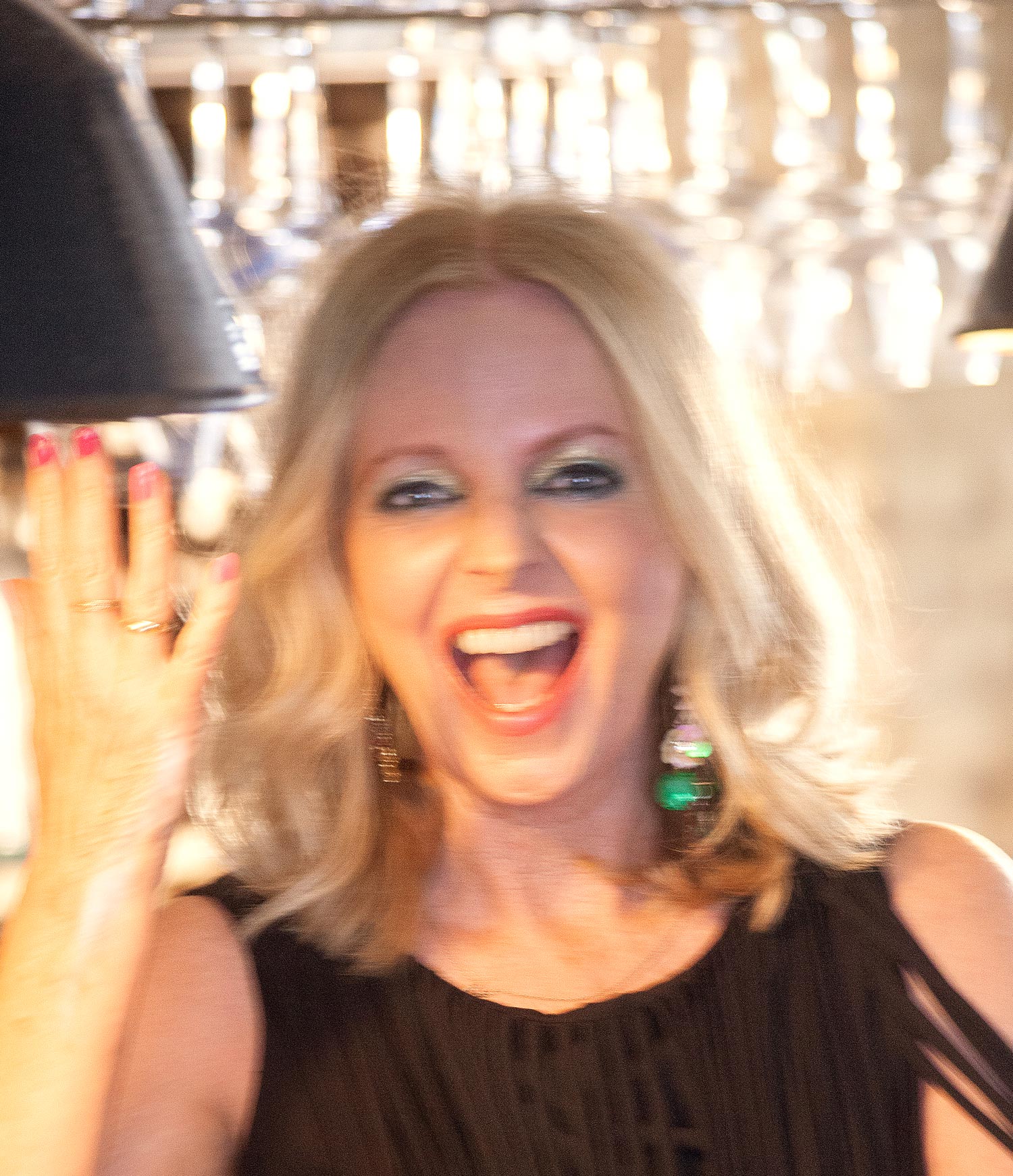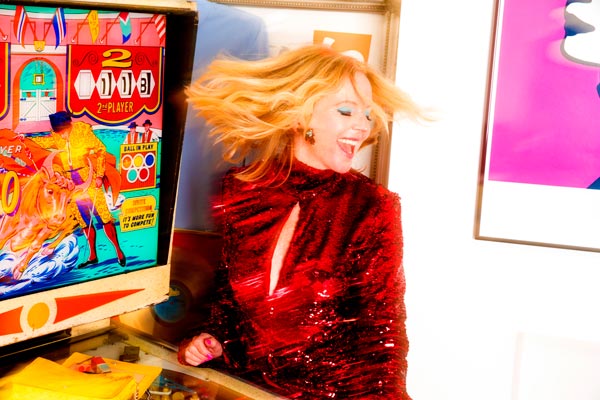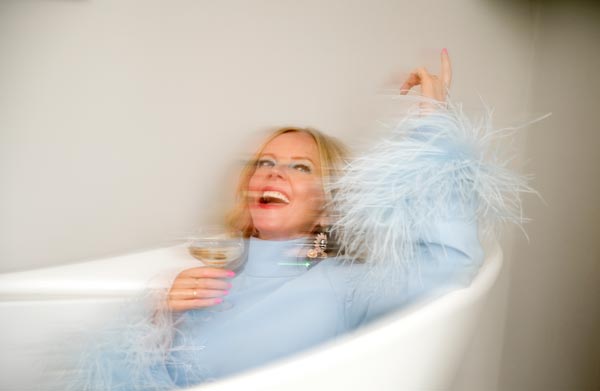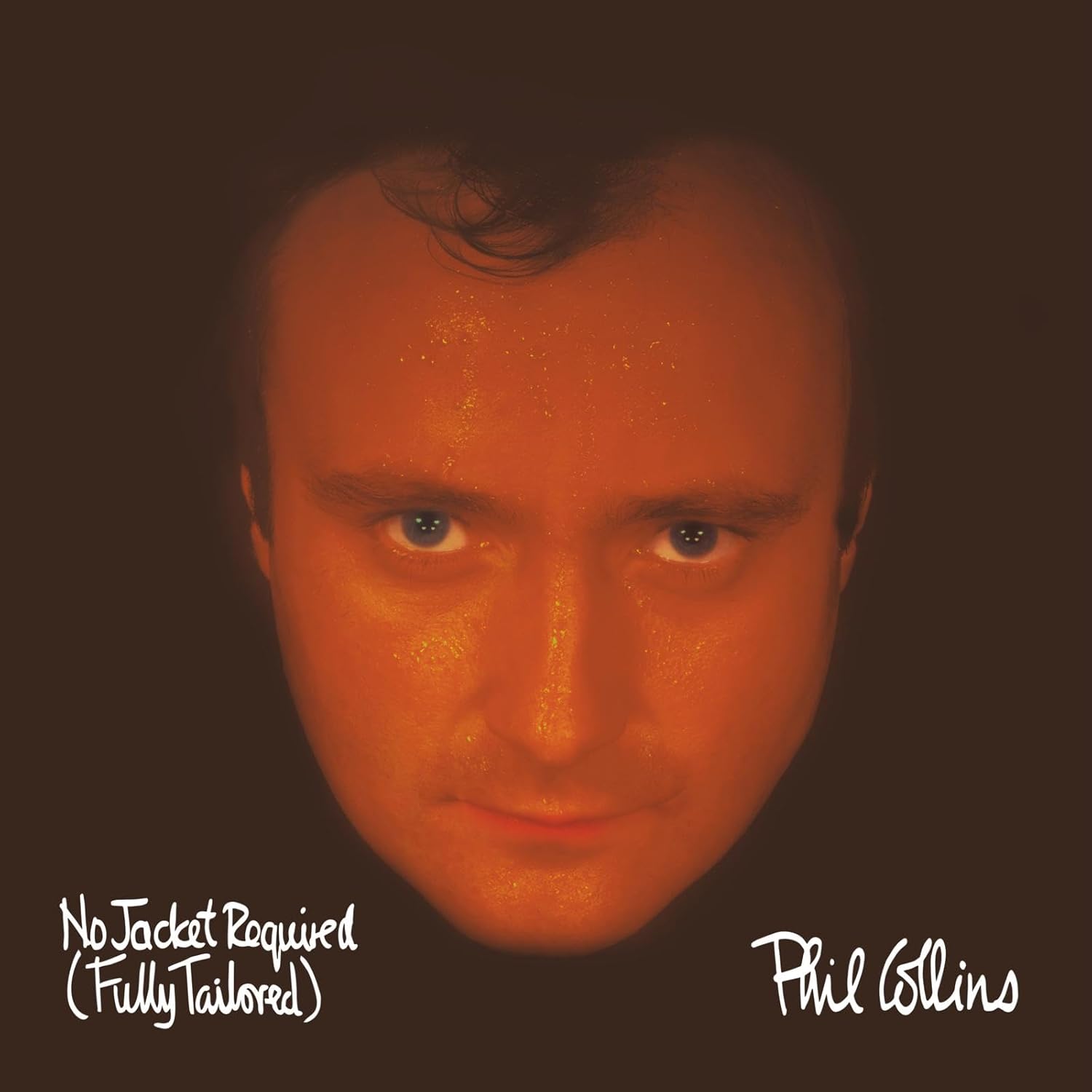Clare Grogan on Altered Images’ first new album for 39 years
And why she’s finally in a good place

Altered Images’ singer discusses why it’s taken so long to make new music, how her unreleased solo album left her feeling broken and the possibility of writing again with Altered Images founder Johnny McElhone. John Earls asks the questions for SDE.
Almost a year ago, Altered Images announced they were ready to release a new album. Mascara Streakz is a defiant, uptempo and also troubled return for a band whose last album Bite was released way back in 1983. Clare has enjoyed a varied career in entertainment, acting in shows from Red Dwarf to Skins as well as Gregory’s Girl and the recently-released My Old School with Alan Cumming. She’s been a TV presenter and writer. But for a generation, Altered Images’ spiky pop was intoxicating. Having made the albums Happy Birthday, Pinky Blue and Bite in just two years, they abruptly split.
Clare returned to playing live in 2004, and is finally ready with a new album made with her husband Stephen Lironi, who joined Altered Images for Bite. Co-writers include Clare’s neighbour, Bernard Butler, and Robert Hodgens, aka fellow Scottish 80s survivor Bobby Bluebell.
SDE spoke to Clare to discover the reasons for her break from new music, as Clare explains why she felt insecure during Altered Images’ height and why she’s decided to embrace her legacy.
Hi Clare, welcome back! How does it feel to have a new album ready to go after so long?
Clare Grogan: It feels massive. It’s absolutely terrifying. Making the album was great, but letting go of it? I’m struggling with that, as I want it to be significant, but I have no real control over that. I’ve made an album I love, with people I love. That’s enough for me, but of course you can’t help but want everyone else to love it too.
How are you with letting go, in terms of not wanting to change the album itself? Did you know when it was properly finished, or are you someone who wants to endlessly tinker with the songs?
Because of the shenanigans with vinyl shortage, the album has taken a while to be released. There was a long time when I didn’t listen to it, but I went back to it recently and I’m really happy with it. I really love one of the bonus tracks, ‘The Other Side’, and I sometimes think I should have put that on the album, instead of maybe ‘The Flame’. But everyone I talk to has a different favourite track.
It’s funny you say that, as I love ‘The Flame’. For me, it’s a great one-two energetic attack with ‘Double Reflection’ for near the end of the album.
Oh, great. I’m glad I’ve kept it, then! I was angry when I wrote ‘Double Reflection’ and I hope that comes across. I get so weary of the constant shaming that goes on, which has touched me over the years. There are a lot of themes going on in this record, among me dancing around.
It does feel a punk record in spirit, going right back to your earliest days as the teenage punks who supported Siouxsie And The Banshees.
Well, I’ve always dressed up difficult themes within a big pop chorus, even on ‘I Could Be Happy’. I’ve always had that side to me, as I think life is bittersweet. With this record, I wanted to make a few points. In some ways, it’s a protest record.
A lot of that was from being around my daughter Ellie in lockdown. Ellie was 16 then, and I thought about how I was starting out in Altered Images when I was her age, about how vulnerable we were. I don’t like dwelling on age, but I’m at the other end of that time now, yet I still feel vulnerable. Why is that? I spoke to Ellie a lot about self-motivation during lockdown and I thought: ‘I need to take a leaf out of my own book here.’ I wanted songs that celebrate myself. All of us have moment when we think we’re not enough, and I wanted to stop thinking I’m not enough.
With this record, I wanted to make a few points. In some ways, it’s a protest record.
Clare Grogan
Were any songs particularly challenging to write?
There are a couple, yeah. I’ll leave it to the listener to work out which ones. The whole album is quite intense, as I’ve revealed myself in a way I’d never have had the confidence to do, even 10 years ago. I love singing these songs, but there’s one that I might never be able to get through live.
How enjoyable is the title track to sing live? That particularly feels like a celebration of who you are.
Oh, that goes down brilliantly well live. There’s a lot of pain on this record, but I can only talk about that because there’s also a lot of light in my life. I don’t want to say Mascara Streakz is a happy ending, but I have finally found a good place to be. Being OK with everything is what the record is about. Well, apart from ‘Double Reflection’ and I’m not going to say what inspired that. I’m so pre-disposed to happiness. Everything in life can get in the way of that, but I’ll still keep going: ‘Let’s have a good time!’ When you’ve faced a lot of difficult scenarios, they can either sink you or you go ‘Fuck it!’ I’ve learned I’m a strong person by having to deal with some incredibly tough scenarios.
What’s it been like to play full-length gigs again, rather than a handful of songs at nostalgia festivals?
That’s been amazing, but I don’t knock those nostalgia festivals. I have such a ball at Rewind and Let’s Rock, but I do say to them all the time: ‘Why can’t I bring my band?’ I hasten to add the Rewind house band is amazing and I have such a good time with them. A lot of bands play certain shows which allows them to afford to play other shows.

You’ve said this album was intended as a love letter to your favourite musicians. Did you ever fall out of love with music in your time away?
No, but I fell out of love with the music business. That slapped me in the face at one point, and I underestimated just how much that affected my confidence. When I got asked back to performing, with the Here And Now tour in 2004, I just wasn’t sure I should do it, as I couldn’t get my head around why people would be interested. I had to reclaim myself, turn those doubts into something positive.
I fell out of love with the music business
Clare Grogan
I’m a huge fan of those early Altered Images records. It’s no reflection of anyone in the band, but it’s no secret it all ended up not great between us for a while. I’m so relieved Johnny and I are friends, obviously I’m married to Stephen, but I don’t have any connection with the others. But I’ve realised there’s no escaping Altered Images. I could either decide to be annoyed about that or to embrace it, and I think the right decision was to totally embrace it.
Is that why the album is released as Altered Images, rather than as Clare Grogan?
It would have worked both ways. But, because my live shows are gaining momentum, I thought releasing a new Altered Images album was the best way to say thank you to all the people who’ve kept turning up at the shows. This record is almost a thank you from Altered Images.
What’s the bonus EP that fans get with the album bundles on your webstore?
Because we’re crazy, Stephen and I wanted to do Cuban versions of old Altered Images songs, which became Clara Libre. That was a lot of work, and we ran out of time to finish some of the songs intended for this album. Also, Stephen and I run two restaurants locally in North London and we open a third in Soho next month. When our restaurants re-opened after lockdown, I lost my top producer.
How enjoyable was it to write songs with Stephen?
It’s the only thing we don’t fight about! We have a shorthand when it comes to writing songs, and I became obsessed with writing for this album. I couldn’t stop – it was almost a Red Shoes moment. It drove Stephen nuts, it drove my daughter nuts, it drove Robert and Bernard nuts. I kept thinking: ‘I have to make this work.’ It was all in there, waiting for the right moment. Who’d have thought that right moment would be 39 years on? I’d never write an autobiography. But writing my memoir through my songs? That’s much more interesting.
Having been friends and a neighbour of Bernard Butler for so long, what was it like writing ‘Glitter Ball’ and ‘Home’ with him?
We’ve been pals a long time, but I was really nervous asking him. I’d started writing ‘Beautiful Thing’ with Robert before asking Bernard, and Robert said: ‘You’re really good at this.’ Robert’s not really like that, so him saying that was huge as I knew he meant it. I’ve always slightly made fun out of myself as a defence mechanism, but I’ve learned now to take a compliment without going ‘Aw no, I’m rubbish, really.’
I’ve always slightly made fun out of myself as a defence mechanism
Clare Grogan
I say that to Ellie all the time: ‘Feel your strength, the power to create something. Make people feel good.’ Robert gave me the confidence to ask Bernard, and our songs happened so effortlessly. The sketch for ‘Glitter Ball’ was so quick and I was so relieved about that. Imagine being round at Bernard’s house for hours and not having a single idea. That would have been so embarrassing.
Could you have written with Johnny McElhone for this album too?
We spoke about it, but it felt we were rushing it a bit with the label deadline approaching. Neither of us wanted that. Johnny was massively busy with Texas’ album Hi coming out, so we decided: ‘Let’s look at this again.’ I’ve got a two-album deal, and I really hope we can do something for the next one.
What was it like to sing on ‘Look What You’ve Done’ for Johnny on Hi?
I love Johnny and Sharleen (Spiteri), and it’s been incredibly special when they’ve asked me on stage a couple of times. For ‘Look What You’ve Done’, I just went to Johnny’s house and sang it a few times. I love getting the chance to work at places like Abbey Road, but it doesn’t always have to be like that, and I love the intimacy of being in a room with people you care about. There’s a shorthand in working with Johnny too, and I’ll always credit Johnny with the fact that, when I joined Altered Images, he said I’d have to help writing songs. I told him: ‘I’m not doing that. I’ve never written a song, how am I going to do that?’ Johnny bought me a book of poetry and basically told me I couldn’t stay in the band if I didn’t start writing. What a gift, encouraging me to do that.
Do you still feel in touch with that younger self who joined the band?
I got asked to do a show with Dame Denise Mina, where I looked back at my early career. The producers had uncovered a lot of footage I hadn’t seen. I’d thought it’d just be good fun to look back at that stuff, but it was very emotional and it unsettled me. Back then, I was hiding all my nervousness by being louder than I really am. I felt quite protective of my younger self, which I hadn’t expected. I had to tell myself afterwards: ‘You know what, Clare? You did OK.’
It couldn’t have been easy as a teenage woman in the music industry in 1981.
I had absolutely no life experience, so I had nothing to gauge it against. I was just living it. People always ask why I left the band, and a lot of it was loneliness. At that time, you didn’t have anyone looking after you, so a lot of the time it was just me and the boys. It’s not that I fell out with them, I just got tired of being the only girl in a very male-dominated environment. It just became too hard. I was on the receiving end of endless criticism, which made me realise I was very thin-skinned. I thought: ‘I don’t want this for myself, I can’t take it.’ I still feel funny about it.
Was there a particular moment when you realised ‘That’s enough’?
I had a big meltdown on tour in America, feeling under so much pressure to deliver. I was questioning myself and I was also being courted by Hollywood producers. I just thought: ‘This is too much.’ I probably just needed a good holiday but, when you’re young, everything is so black-and-white. Altered Images were held to account a lot. We put out three records in very quick succession, but we were made to feel we weren’t doing well enough. It was tough, a weird period in my life where it all felt out of control. By that point, I’d been on the move for four years and I realised I actually quite like routine. So I went home to Glasgow to make Comfort And Joy with Bill Forsyth, who’d directed Gregory’s Girl. I stayed at my mum and dad’s and thought: ‘I’m not leaving here again.’ I felt safe and secure there and, looking back, I must have felt unsafe elsewhere. I don’t know why I didn’t feel safe specifically, I just know I felt vulnerable.
It felt like you had a kinship with Siouxsie And The Banshees, that you were the lighter side of their ethos, yet you were attacked for being ‘pop’. From the outside, it feels like you couldn’t win.
Yes, maybe. We weren’t faking any of our excitement. We went from watching Top Of The Pops to being on it. The summer I left school, we got signed to Epic and I made Gregory’s Girl. And it all just rollercoastered from there. Everything that was on our dream checklist, we achieved within weeks. ‘It’d be nice to support The Banshees.’ Tick. ‘It’d be nice to get a John Peel session.’ Tick, and John Peel really liked us. It was insane and I’ll never understand how it happened. It was an incredible thing to happen to me – until it wasn’t.
Did you ever wonder why it happened to you specifically?
I used to wonder that, but I learned in lockdown that I’m obsessed with performing. It can’t all be luck that I’ve kept this career going all this time. I work really hard behind the scenes and I’m very hands-on with everything. I don’t know what that says about me, it’s just who I am. I had that work ethic from my parents, and I absolutely view this as a job. I love the job, I have amazing perks from it, but you have to treat it as a job. I’m the dullest person at my shows afterwards because, even if everyone is partying around me, if I’ve got a show the next day, I’ll be so focused.
With the band and Gregory’s Girl taking off at the same time, presumably you never had time to party even at the start of your career?
I didn’t, and I’ve also always known when to go home. Something in me says: ‘Right, time to go!’ and that’s probably why I’ve survived too. I love a carry-on more than anything, but when I’m working, I’m working. I’ll have that carry-on at home with my family and friends. If I’m doing a job, I focus on that. I’m cautious, and I have to be. Quote me on that when I’m dancing on the tables after my next show.

What was that tour supporting Siouxsie And The Banshees actually like?
So lovely. What strikes me now about the bands we supported in our early days – The Banshees, U2, Simple Minds – is their kindness and support towards us. It let me get on stage and show off. It was funny and crazy, but we were looked after by those bands too. They all seemed so much older than us and they seemed like they knew what they were doing, but they were all only a couple of years older.
How encouraging was Steve Severin when he produced Happy Birthday?
He was great, we had such a brilliant time making that album at Rockfield. He made us work hard, but he’d join in the fun too, like when The Cure came to visit and we had a food fight. Stephen has produced at Rockfield and, whenever I go back, I think of what a great time we had. You’re in a little bubble in a residential studio like Rockfield, and Johnny had a big work ethic. On one level, we had fun, but we really thought about that first record too. I listened to it recently as I was curious about it, and I thought Steve did a great job.
How much of the progression from Happy Birthday to Pinky Blue was down to Martin Rushent being such a great pop producer, and how much was it from the band naturally becoming poppier?
We really wanted to have hits. Johnny wanted us to sell 500,000 records, not 5,000. We loved Dare and had been Human League fans since ‘Being Boiled’, so Martin was perfect. We’d made a decision to be more synth and less guitar-y. Martin came to a band rehearsal. At that point ‘Happy Birthday’ and ‘I Could Be Happy’ were the same song, and it was Martin who told us: ‘You need to split that up: there are two brilliant pop songs in there.’ We’d already recorded the two-in-one version of both songs with Steve Severin, which must exist somewhere. I’d love to hear that.
How do you view Bite now?
I like that record a lot. Stephen came along and took us to another level, as he was obsessed by technology. He had a Linn drum, and he was the first person I knew who owned a computer. He was obsessively tech and we had a lot of attention to detail. Also, imagine getting to make a record with Mike Chapman and Tony Visconti. In your wildest dreams – tick. The gobby Glaswegian side of us had to be there for Bite: working with legends like that and telling them how you want it to work. That’s just cheeky. Mike is brilliant. I saw him a few years ago, and he told me: ‘You guys nearly pushed me over the edge.’ I felt quite proud of that.
When did you start to feel confident as a songwriter?
It always seemed like an accident at the time. We just did it. Now, I love the idea of sitting around a table to write. I come up with a lot of melodies when I’m running. I sing them into my Dictaphone when I’m back and show them to Stephen. He makes it work brilliantly, and that’s how a lot of this album was written.
What happened with your unreleased solo album Trash Mad after Bite?
There was a crazy bidding war to get me for a solo deal, which London won. I was produced by Mark Kamen, and we did a lot of the record in New York. But London just didn’t believe in the record. That was really hard, and it absolutely broke me.
Could it ever get released one day?
I’d like to hear it for myself first, partly as I think: ‘It can’t have been that bad.’ Maybe it could come out, but right now I have to be in the moment and focus on this record.
As you have a two-album deal, do you have ideas for the next record already?
I do, but it’s such a great feeling to be here and concentrating on this record. Whatever happens next, I never know. That’s what I like about my career, knowing something fun will come along and not knowing what it’ll be. I get to grab things I want, which is nice. I’ve had a great time doing lots of things: acting, writing, presenting. I love all of that, but singing makes me feel so free. I had a moment when it didn’t, when instead it made me feel not good enough. I’m so over that now. I have a polarising voice, I know it’s Marmite, but when you listen to all that negativity, it fucks you up. There could have been so many obstacles to making this record, and I thought I’d ignore them and do it for myself.
It feels like people are ready for a new Altered Images record, that the time is right for you to release something new. Does it feel that way to you?
It does. A lot of new music is quite 80s-influenced, and there might be something in that. But I’ve no idea what’s going to happen with this album. I wanted to cause a bit of a ripple and, beyond that, I can’t control it. I’ve caused that ripple and that’s good enough for me. At this point it’s a labour of love, and slight madness. Music has given me so much, and I love connecting with people through music. When I look out into the audience, I know we’ve all been through shit. But when we’re there, in that moment, nothing else matters. And I love that.
Thanks to Clare Grogan, who was talking to John Earls for SDE. Altered Images’ new album Mascara Streakz is released on Cooking Vinyl today, on vinyl, CD and cassette.
Mascara Streakz will be released on 26 August 2022.
- Mascara Streakz CD signed by Clare Grogan
- Mascara Streakz coloured vinyl LP
- Mascara Streakz CD/cassette bundle with bonus CD
Compare prices and pre-order

Altered Images
Mascara Streakz - CD edition
Compare prices and pre-order

Altered Images
Mascara Streakz - black vinyl LP

|
|
||||||||||||||||||||||||||||||||||||||||||||||||||||||||||||||||||||||||||||||

 Interview
Interview
 Reviews
Reviews


By Paul Sinclair
8